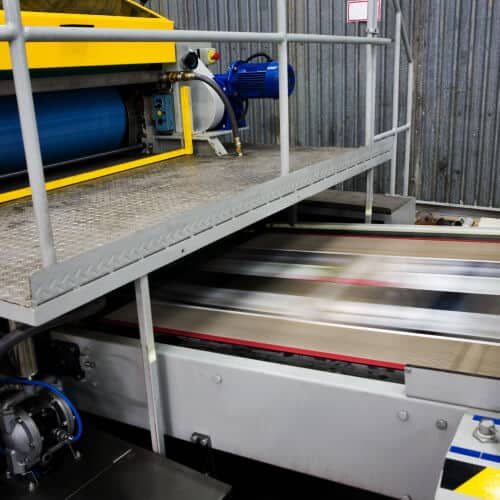A Comprehensive Guide to Understanding Litho Printing Techniques
The globe of litho printing, a technique originating from the late 18th century, is an interesting mix of history, art, science and development. Remain with us as we trip right into the fascinating world of litho printing.
The Historic Advancement of Litho Printing
The historic trajectory of litho printing, a crucial advancement in the realm of communication, is a captivating story of human resourcefulness. The process developed with the advent of the rotating press, which substantially boosted efficiency. Each phase of litho printing's development showcases humanity's unrelenting search of performance and quality in visual interaction.
Deciphering the Science Behind Litho Printing Inks
Progressing in the exploration of litho printing strategies, the emphasis now changes to the science behind litho printing inks. The composition of these inks, their drying procedure, and shade mixing methods create the foundation of this complicated art form. Recognizing these elements is vital to mastering the craft and attaining the desired print results.
Composition of Litho Inks
In lithographic printing, the basic duty of litho inks can not be overstated. Pigments, the color-providing elements, are carefully ground bits suspended in the vehicle, a fluid that lugs the pigment onto the printing surface. Each element plays a critical component in the final print's high quality, making the exact formula of litho inks a complex scientific research.
Ink Drying Refine
From the composition of litho inks, interest turns to the interesting procedure of ink drying. The drying out process is crucial, as it impacts the last print's high quality and durability. 2 primary approaches are made use of in litho printing: oxidative drying and absorption. Oxidative drying out involves the ink responding with oxygen in the air to develop a tough, dry movie. This method supplies a long lasting finish, but can be slower contrasted to absorption. Absorption, on the other hand, entails the ink seeping into the paper fibers, which is a faster process but can lead to less vivid colors. The selection between these methods depends on aspects such as print rate needs, the paper kind utilized, and the desired coating.
Shade Mixing Strategies
While the drying out process plays a vital role in litho printing, the scientific research of color mixing techniques holds equivalent significance. This is a complex procedure that involves the mindful mixing of main colors: cyan, magenta, and yellow, in varying percentages to attain a large array of tones. The enhancement of black ink, referred to as 'key', aids in controling the strength and depth of the colors. The scientific research behind litho printing inks additionally takes into account the transparency of the ink, which impacts how shades overlay and mix. To attain an effective color mix, print professionals need to additionally understand the details of ink behavior, color theory, and the physical homes of the substrate on which the ink is used.
The Art and Style Aspects in Litho Printing
Litho printing takes a breath life right into art and design via its unique aspects. The procedure involves producing a picture on a lithographic sedimentary rock plate or steel plate with a smooth surface area. The picture is after that printed onto a tool, typically paper, by moving the ink from home plate. What collections litho publishing apart is its capacity to reproduce intricate designs with high integrity, making the result virtually similar to the original art work. This is achieved through making use of different line techniques such as stippling, cross-hatching, and hatching, which allow for a variety of tonal effects. Moreover, litho printing accommodates a selection of shades, enabling musicians to create dynamic and vibrant prints. This mix of precision and versatility makes litho printing a preferred selection for many artists and developers.
Modern Applications of Litho Printing Techniques
Litho printing methods have actually discovered substantial use in the modern commercial industry. Its impact and importance continue to grow with the advent of brand-new innovations and modern technologies in the field. This section will certainly explore these modern applications and the transformative duty they play in the printing market.
Business Litho Printing Uses
Litho printing continues to be a critical part of the business market. discover here High-volume printing tasks, such as the manufacturing of publications, newspapers, and product packaging, count on litho printing for its ability to provide remarkable photo high quality and price efficiency. Litho printing additionally provides a broad shade spectrum, superior to anonymous that of digital printing.
Technologies in Litho Printing
Pressing the borders of traditional methods, modern innovations have fueled a host of developments in litho printing. One noticeable advancement is digital litho printing, which combines the virtues of electronic modern technology with litho's premium result. These technologies emphasize the enduring relevance of litho printing in the contemporary globe.
Discovering the Refine of Litho Printing: Action by Step

Difficulties and Solutions in Contemporary Litho Printing

In spite of the precision and custom that litho printing happily maintains, it is not without its collection of contemporary challenges. One of the most prevalent issues include the high initial arrangement expense, difficulty in printing variable information, and environmental issues due to chemical use. Services are emerging as modern technology develops. Digital litho printing enables economical brief runs and very easy customization, addressing the problem of variable information. Environmentally-friendly inks and safer plate-making processes reduce ecological worries. In addition, innovations in automation have actually lowered labor prices, further equalizing the lithography process. Thus, while there are difficulties, the litho printing sector is proactively adapting to satisfy them head-on, ensuring its significance in the future.
Final thought
In conclusion, litho printing, with its abundant background and clinical ins and outs, holds a substantial place in the print market. The discover this info here future of litho printing pivots on its ability to adapt to these transforming needs, verifying its long-lasting value in a progressing market.
